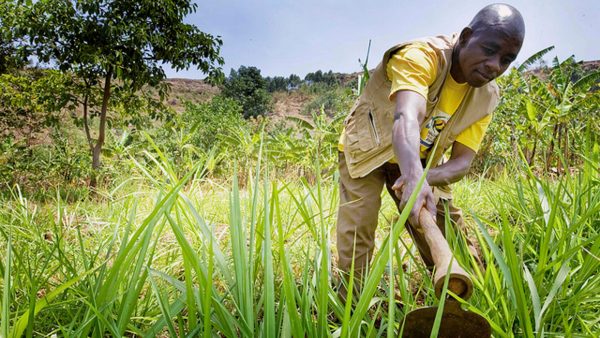
A major aim of biological research in the 21st century is to expand the use of effective biological nitrogen fixation (BNF) to cereal and non-legume crops, thereby reducing dependence on exogenous nitrogen fertilizer. This is specifically essential for small holder farmers in sub-Saharan Africa as they have little or no access to fertilizers. Biological nitrogen fixing microbes as seed or soil application offer the likeliest innovation to solve this challenge, however the products available in market are either non- symbiotic or free living microorganisms that have not shown consistent benefits in low input systems. The only successful biological fixation innovation that has been practiced as a seed inoculant is symbiotic microbe Rhizobium, but it is highly host specific. Due to the robust association of these underexplored microbes, they present a high chance of success in harsh environments as well as local production in contrast to other products in market.
The Crops Discovery and Translational Development team, a part of the Agricultural Development Program Strategy Team (PST) at the Gates Foundation engaged the Strategic Analysis, Research & Training (START) Center to summarize information on the potential for underutilized non-symbiotic nitrogen-fixing (NSNF) microbes as biofertilizers. The START team did this by conducting key informant interviews (KIIs) and performing a rapid literature review. Specifically, this project looked at understanding the landscape of basic science around NSNF mechanisms, identifying barriers, facilitators, and opportunities in the translational process and identifying any existing NSNF products in use.
Of the 1,000 articles screened, the team extracted data from 27. Most of these 27 studies were set in low- or middle-income countries, with 44% of the studies focused on rice and limited focus in sub-Saharan Africa. Only 19% of the studies discussed yield outcomes, and there was minimal discussion on product development barriers. Through 10 KIIs, the team identified barriers, facilitators, and opportunities on NSNF microbes covering basic science, pilot product development, real-world adoption, and scale up in both the Global North and Global South.

The START team found there is untapped potential of underutilized non-symbiotic nitrogen-fixing microbes, especially in native ecosystems. These diverse microbes could promote plant growth and nutrient cycling, offering promising bio-based solutions. Using indigenous microbial strains that are already adapted to local environments is key. Microbes from local soils are better suited for developing biofertilizers for these contexts.
A major challenge to this progress is the translation of research findings into commercial products. Quality control and regulatory support are needed to ensure biofertilizers perform effectively across different field conditions. Inconsistent field performance and low farmer awareness remain significant obstacles, even with promising NSNF products. Pilot studies and field trials are necessary to validate the real-world benefits and scalability of NSNF microbes across diverse agricultural settings.
In summary, the use of NSNF biofertilizers can be advanced by a focus on native microbial strains, rigorous field trials, establishment of regulatory support, and capacity building. These steps could improve crop yields for small-holder farmers and contribute to sustainable agricultural development.







